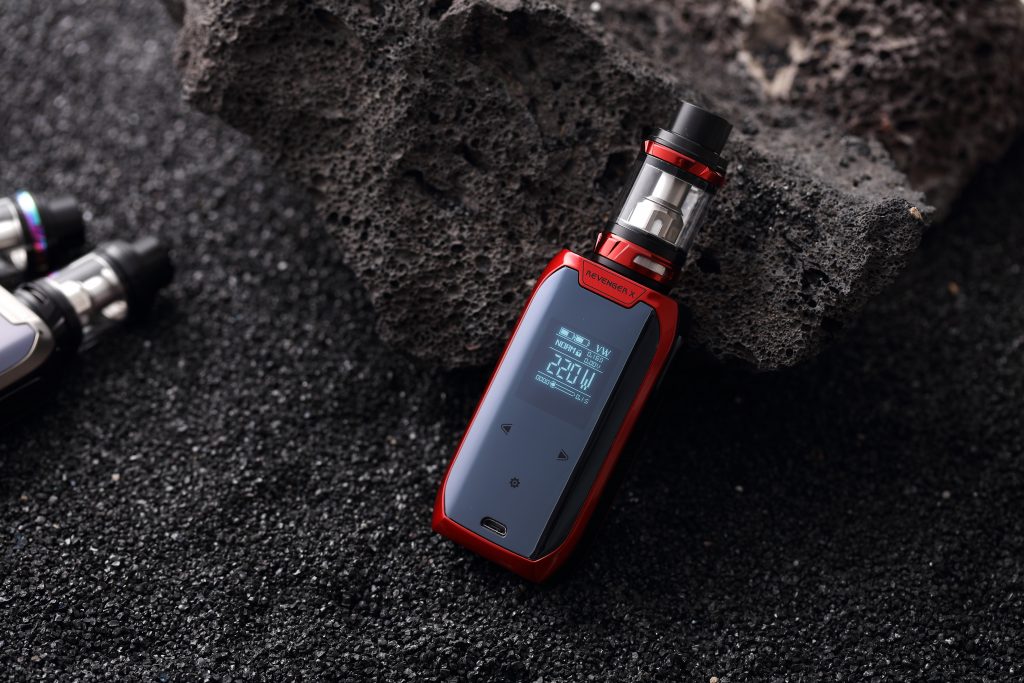The Teen Years are Here – Now What!?
You might notice your teen pulling away, not wanting to spend as much time with you, and who certainly would rather be on their phone than attend most family events.These are the teen years,a time when your teen is breaking away from childhood and experimenting with adulthood. It is a significant time for them and for you as a parent, as you adjust to someone who is pushing away one minute – and wanting a hug the next.
It is a difficult – but a very important – milestone to manage.
Lisa Damour (PhD Psychologist)shares a lot on what is going on during this important developmental phase and how to handle it, in her book: ‘Untangled: Guiding Teenage Girls Through the Seven Transitions’. I highly recommend ordering a copy!

Photo by Melissa Askew on Unsplash
What Does Breaking Away from Childhood Mean?
Breaking away from childhood – the teen years – is this idea of testing out different roles and aspects of adulthood. Almost like they are testing the waters of being an adult without diving in; a safer space to experiment. Your teen will be jumping back and forth between their new experiences, and their childlike demeanour.
I noticed this juxtaposition a lot on a recent vacation with my own teenage son. Usually, my son is very peer orientated. He wants to be with friends All. The. Time. When we were on vacation with no friends, my son wanted to spend a lot of time playing basketball with us every day, even showing physical affection, and playing games with his younger brother. But then later on, he was talking about dating and being in relationships and retreating to the trailer to be by himself.
This is part of trying out adult roles, while being connected to aspects of childhood.
Testing out adulthood could be anything for your teen, from sudden changes in fashion – hair, makeup, crop tops, etc. to no longer wanting to spend time with you. Your teen may want to spend most of their time in their room, but then occasionally still enjoy a day of baking with you, like they used to.
When friends are around, there may be a lot more eye rolling, or attitude – “mom, you don’t know anything!” type of behaviour. There’s a lot more pushing you away; you might see a different side to your teen when it’s just the two of you.
For the most part, you are held at arm’s length from their life and inner experiences… But when something goes off the rails (fight with friend, relationship ending, etc.) they’ll come to you and ask for advice, or want a hug. This is the flipping back and forth.
Dr. Damour uses the analogy of a swimming pool to explain the concept of breaking away from childhood in the teen years, a playground image came to my mind – a very similar concept.
Picture a playground, with the outer border outlining the park. In the middle are the play structures. The border – or outer edges – represent you as the parent. This is where your teen starts as a child, and then enters the playground. The play structures inside represent all the different things and experiences they are trying out as they move into adulthood.
Younger children wouldn’t go far from that outer perimeter without having an adult nearby. But as teens, they can’t wait to leave the perimeter – a LOT! They want to be in there playing, trying things out. They want to explore their identity, experiment with new activities, and build different types of relationships.
As a parent, you are on the sidelines a lot of the time – you don’t necessarily know everything that is going on, thoughts, inner experiences etc. And they aren’t keen on sharing… But they will come back to the perimeter if they need a break from all that playground excitement.
When the tire swing makes them dizzy, they will come back to you – the perimeter – to sit for a minute. This is when you might have a moment of opening up a little bit, a sharing of their experience. Your teen may want a hug or a snuggle. They may even want to spend some time with you again…
The outer perimeter of the playground is their safe zone – you are their safe space.
It can be tempting for you to try and keep your teen close to the perimeter. To want things to go back to the way they used to be. But your teen wants to be in the playground , on the structures. That’s where they need to be in order to grow.
It can hurt and feel lonely as a parent to see them run back off into their own space and take off into the world.
Know that it is very important that your teen has you there at the perimeter to be solid and keep them safe when they need it. For your teen to know they have a safe place to go when they are tired of climbing on the playground.
Understanding how important your role on the perimeter is, can be helpful to get you through this phase.

Photo by Omid Armin on Unsplash
Breaking Away from Childhood Is A Celebration
The role you play during the teen years is very important because they need to know they have support. They need to feel safe while they are breaking away from childhood.
The more I understand this process personally, the more I find myself being present in the moments when my teen is on the perimeter of the playground. I recognize how important it is to be there when my son needs a breather from the play structures, from trying new things. It feels empowering for me as a parent to know I am doing what I need to do to move him into healthy adulthood. And yes, at times a bit sad also.
So remember, when your teen doesn’t want to participate, is giving attitude, or would rather be with their friends – it is positive for their development. They are moving towards an important milestone, with you as a safety net. Breaking away from childhood is normal. And it is worth celebrating as a parent.

Photo by Sincerely Media on Unsplash
Taking Care of Yourself as a Parent in the Teen Years
Although it is a reason to celebrate, the process of breaking away from childhood can feel lonely and hurtful. Your teen may push you away, say mean things, give attitude, etc. You can feel rejected. This is especially true if you had a strong bond with them as a child. Just because this process is normal, doesn’t mean it isn’t hard. There might be moments of loss, and even grief for you. There could also be a deep need to understand the change within yourself.
Taking care of yourself throughout this process is very important. Understanding what’s going on is a helpful first step. You will also need ways to get your own nurturing. This can be through other adult relationships in your life, like your co-parent, another parent friend or being part of a community of parents. Being around others who are going through similar things will help you feel less isolated; you are not alone in the struggle. The Happiness Pill Program is a community I am building for you, as well as for your teen during this time. You can check it out here.
This developmental milestone is a time of shifting your focus from constantly being needed by your child, to having some space to recognize your own needs. Yes, your teens still need you, but not in the same continuous way they did when they were little. I encourage you to spend time connecting with things you love and enjoy that fill you up. Find activities or hobbies that were impossible to do when your teen was young and needed you physically all the time. You might see there is space for new interests! Not only are you taking care of yourself, but you’re modeling self-care for your teen as they experiment in the adult world.
Setting clear expectations for when your teen is pushing back and experimenting with boundaries is also a key part to taking care of yourself as a parent. Just because your teen needs you at the perimeter of the playground, does not mean you’re a doormat. They cannot walk all over you and treat you any way they like. Sometimes this can be tricky as a parent! Your teen may finally be wanting to spend time with you, and it may feel like telling them something they’ve said was hurtful will blow up and cause a big conflict. But it is absolutely okay to set those expectations – in fact, it will help them learn relationship boundaries that will carry into adulthood!
It is also okay to come back to something your teen has said or done, at a later time. To talk to them the next day and say “hey, what you said last night really hurt me. Let’s think about that choice in language next time.” Or letting them know ‘we don’t name call in this family’ etc.
Setting these boundaries can be emphasized, if you have the luxury of being in a two-parent (or multi-parent) family, in the following way- Having someone back you up a little when your teen says mean or inappropriate things. Another adult to say things like “ don’t talk to your mother like that, she deserves your respect just like anyone else”, and reiterate your expectations.
Even if you don’t have a two-person system in your family, it is still important to have clear boundaries and expectations. And to take breaks to care for yourself as the parent.

Photo by Charles Deluvio on Unsplash
How to Tell When A Teen’s Behaviours Are Concerning
While breaking away from childhood is a very normal developmental phase, Dr. Damour talks a lot about extremes being a sign of concern.
If your teen isn’t showing any signs of breaking away, it can be concerning – no attitude, push-back or boundary setting, etc. If your teen is constantly people pleasing, with very little attitude or experimenting with new things, something may be preventing them from breaking from childhood. Being highly anxious to try new things on the play structures, can impede their development.
If your teen is on the other end of the spectrum – constantly in the zone of adult-like behaviour – it is also something to pay attention to. If your teen is constantly participating in risky behaviours, completely cutting you out, never reverting back to childhood moments, always pushing boundaries, etc., they are showing signs that something concerning is going on.
Of course, crossing the line with behaviours will be different for everyone based on family rules, values, and expectations. But if your teen is harming themselves or others, it’s important to pay attention. This is a sign that you may need to guide their experiences.
It’s important to note that teens aren’t consciously pushing back or giving attitude with the thought of “I’m test driving adulthood”, but as parents understanding the context of these behaviors can help you guide them in terms of behaviours that are going to help them transition into adult life.
As mentioned earlier, having a community with other parents – knowing you aren’t alone – is crucial for you. Part of The Happiness Pill program is a weekly community call with other parents who know exactly what you’re going through. It is there to bridge the gap in communication between you and your teen. There is guidance along the way, touching base on all the important components of breaking away from childhood.
Check it out here. Or book a strategy call (free) with Chantal to see if the program is something for you.
Love,
Chantal
 Chantal Côté (she/her) is a psychologist and teen life coach living in Calgary, Alberta. After over a decade in non-profit and community mental health, Chantal started Pyramid Psychology, a practice dedicated to supporting teens – a population she is constantly amazed by. Chantal is on a mission to help 100,000 teen girls (and their parents) build bulletproof mindsets so they can weather the ups and downs of life. As part of this goal, Chantal has had the privilege of speaking at various events – virtual and live – to support teens and parents.
Chantal Côté (she/her) is a psychologist and teen life coach living in Calgary, Alberta. After over a decade in non-profit and community mental health, Chantal started Pyramid Psychology, a practice dedicated to supporting teens – a population she is constantly amazed by. Chantal is on a mission to help 100,000 teen girls (and their parents) build bulletproof mindsets so they can weather the ups and downs of life. As part of this goal, Chantal has had the privilege of speaking at various events – virtual and live – to support teens and parents.
Outside of this passion, Chantal is often in nature, writing poetry, playing ball hockey and hanging out with her loved ones.
Each week, Chantal writes a blog article in response to issues she hears from the parents and teens she connects with. If you have something you’d like to read more on – email ideas and questions to info@pyramidpsychology.com or DM us via Instagram or Facebook.














